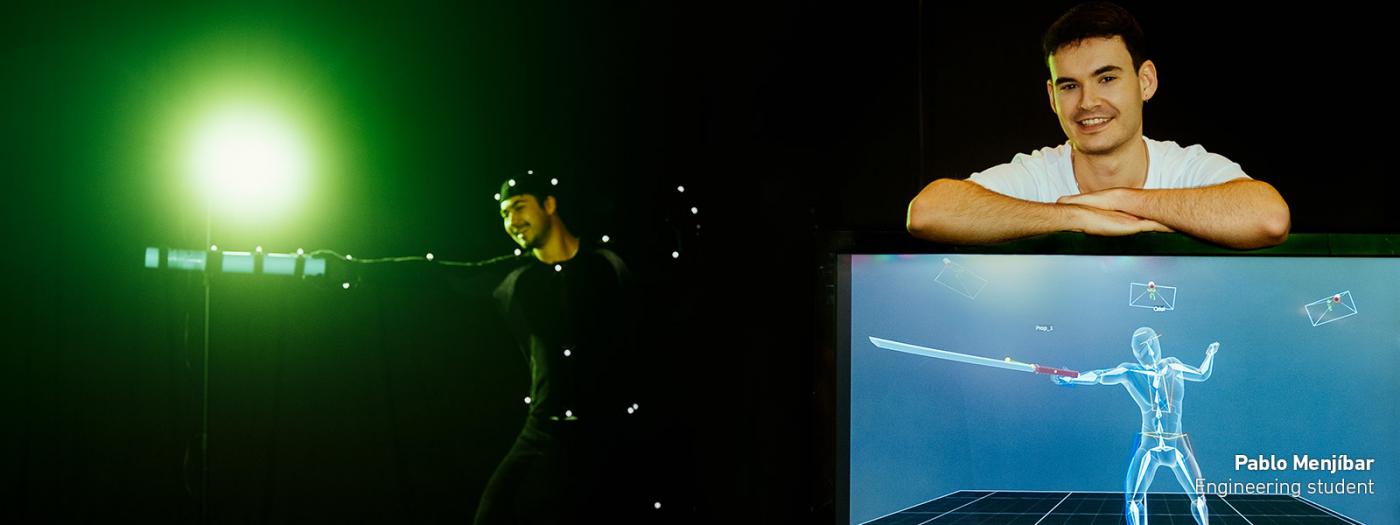In this subject, it is intended that the student can achieve the analysis of the basic concepts of real functions of real variable and its applications, as well as develop skills for the study of functions, calculation of limits, differentiation and integration, differential equations, applications of derivative and finding the convergence of numerical and functional series. It is emphasized that the student is able to understand and relate results and basic demonstrations, as well as to acquire the capacity for analysis and synthesis in the face of a problem. In addition, the basis of the numerical calculation is given by performing computer practices.
Titular Professors
Professors
Trigonometry, basic functions and derivation.
The Learning Outcome of this subject is:
LO1 Mathematical knowledge to face the bachelor's degree.
This is a very generic learning outcome, which is also shared with other subjects. In the subject of calculation, this result of general learning is specified in the following learning outcomes:
LO1.1: Knowledge of integral and differential calculation in a variable to face the degree.
LO1.2: Practical application of the knowledge of Calculus in the technological field.
1. The numbers
1.1. Presentation of different types of numbers and their properties.
1.2. Real numbers in equations with absolute value
1.3. Complex numbers.
2. Functions
2.1. Elementary Functions: Definition and properties.
2.2. Limits: Definition, properties and calculation.
2.3. Continuity: Definition, properties, types of discontinuities
2.4. Basic theorems on continuous functions in intervals.
2.5 Asymptotes
3. Differentiation
3.1. Definition and meaning derivative
3.2. Referral techniques
3.3. Theorems about derivable functions in intervals.
3.4. Taylor polynomials
3.5. Growth and decrease, Relative extremes
3.6. Concavity and convexity, Turning points.
3.7. Graphical representation of functions.
3.8. Optimization
4. Integration
4.1. Immediate integrals
4.2. Integrals for change of variable and parts.
4.3. Integrals of rational functions.
4.4. Integrals of trigonometric functions.
4.5. Integrals of irrational functions.
5. The Riemann integral
5.1. Definition and properties. Geometric interpretation.
5.2. Fundamental theorem of calculus.
5.3. Improper integrals: Definition and basic calculations.
5.4. Applications of integral calculation (areas, lengths and volumes)
6. Ordinary differential equations (EDO)
6.1. Classification
6.2. Equation of variable separable
6.2 Homogeneous equations of 1st order
6.3. Linear equations of 1st order
6.4 EDOs applications
6.5. Linear equations of 2nd order
The subject has a weekly operation with 2 sessions of 100 minutes. Different types of sessions will be combined throughout the course:
- Most of the sessions are dedicated to work on the conceptual contents of the subject through an inverted class structure (Flipped classroom), which divides each session into three parts. The first part in which the work done by the student in class is reviewed and expanded, the second part in which the teacher explains the key points of the content worked and the third part in which the students work new exercises to consolidate the matter.
- Practical sessions that are mainly dedicated to the Numerical Calculation practices where students work in groups of two with a laptop that has Matlab software.
- Finally, some sessions that are dedicated to individual evaluation through written tests or review sessions for exams.
In order to evaluate if the student has obtained all the objectives in this subject, different tests are done to obtain information from the students:
Exams: during the academic year, four main exams are done: two at the first semester and two more during de second semester.
Class tests
Class participation and delivery of exercises
Practice by personal or group work
The final grade of the subject will be calculated from the two semester grades.
Semester grades will be calculated as a weighted grade: the exam grade (Ex_Grade) and the continuous evaluation grade (CE Grade) according to the following formula:
Semester_Grade = 0.7 · Ex Grade + 0.3 · CE Grade
provided that the Ex Grade is greater than or equal to 3.5, otherwise it will be directly Semester Grade = Ex Grade
On the other hand, the exam grade will be calculated by averaging the exam marks of the first part (Ex_First_Part) and the exam grade of the second part (Ex_Second_Part), provided that the exam grade from the first part is at least a Five (5) :
Ex_grade = 0.5 · Ex_First_Part + 0.5 · Ex_Second_Part
In the event that the exam grade of the second part (Ex_Segona_Part) is less than 3.5, the average will not be made but:
Nota_Ex = Ex_Segona_Part
In the case of not having passed the first part, the student must take the final exam (Ex_Final_Semester), which includes all the contents of the semester:
Nota_Ex = Ex_Final_Semester
If any of the semesters has a minimum grade of Five (5), then those contents will not be included in the extraordinary call. Semester grades are not saved for the next course and to pass the subject it is necessary that both are passed separately (with a minimum grade of 5).
The final grade of the subject will be the average of the marks of the two semesters in the event that both are approved. If a semester is not approved, the official grade of the subject will be calculated by making the minimum between the average of the two semester notes or a grade limited to 4.5.
Students who do not pass the ordinary call in June will have the option to attend the extraordinary call (July),
Paul's Online Notes. https://tutorial.math.lamar.edu/
Guia de Càlcul. Professors de càlcul. Enginyeria La Salle. (on line via eStudy)
Fonaments bàsics de matemàtiques. Professors de ciències bàsiques. Enginyeria i Arquitectura La Salle. 2009.
Càlcul. Ramon Villalbí. Enginyeria i Arquitectura La Salle. 2005.
Cálculo Diferencial e Integral. Piskunov, N. Editorial Mir , 1983
Cálculo I. Teoría y problemas. Alfonsa García et al. Editorial GLACSA, 1994
